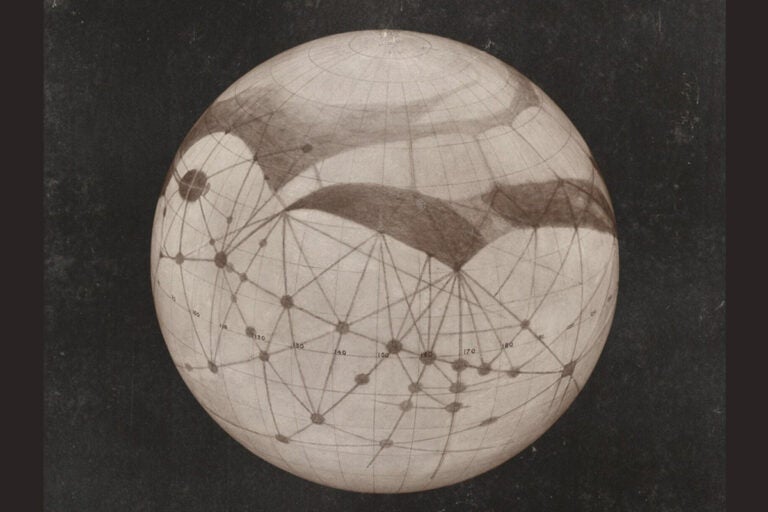Mars Mania: How America Became Obsessed with Mars
Tracing the history of our obsession with Mars, from modern efforts to colonize to belief in a Martian civilization.
Listen 50:03
Near the start of the 20th century, a strange phenomenon swept the country — "Mars Mania," a public obsession with the idea, pushed by astronomer Percival Lowell, that Mars was home to an intelligent race that had constructed a series of canals spanning the planet. Lowell created multiple illustrations and maps designed to depict his vision of Mars. {Courtesy of David Baron)
Today, we usually associate Martians with sci-fi — from vintage depictions of “little green men,” to images of Matt Damon growing potatoes on the surface of Mars. But a little over a century ago, Martians existed in a very different way in the public imagination — as not only real, but as intelligent beings who’d created a sophisticated civilization.
“Mars Mania” was sweeping the country, with prominent scientists claiming to have seen evidence of Martian architecture, and newspapers like The New York Times proclaiming “There is Life on Planet Mars!”
On this episode, we talk with science writer David Baron about his new book, “The Martians: The True Story of an Alien Craze that Captured Turn-of-the-Century America.” We hear about why life on Mars became a nationwide obsession, the astronomer who pushed the idea, and what happened when other scientists realized he was wrong. Also, we listen back to the story of Mars One — how a Dutch entrepreneur convinced thousands of people to volunteer for a one-way mission to colonize Mars.
ALSO HEARD:
- In 2012, a Dutch entrepreneur named Bas Landorp announced that he was launching a privately funded effort to colonize Mars within the next 13 years. The project, known as Mars One, earned plenty of skepticism — but it also captured the imaginations of thousands of people around the world, eager to become the first humans to settle the Red Planet. Reporter Liz Tung talked with some of the applicants about the application process, and why they were excited to end their lives on a distant planet far away from Earth.
WHYY is your source for fact-based, in-depth journalism and information. As a nonprofit organization, we rely on financial support from readers like you. Please give today.






